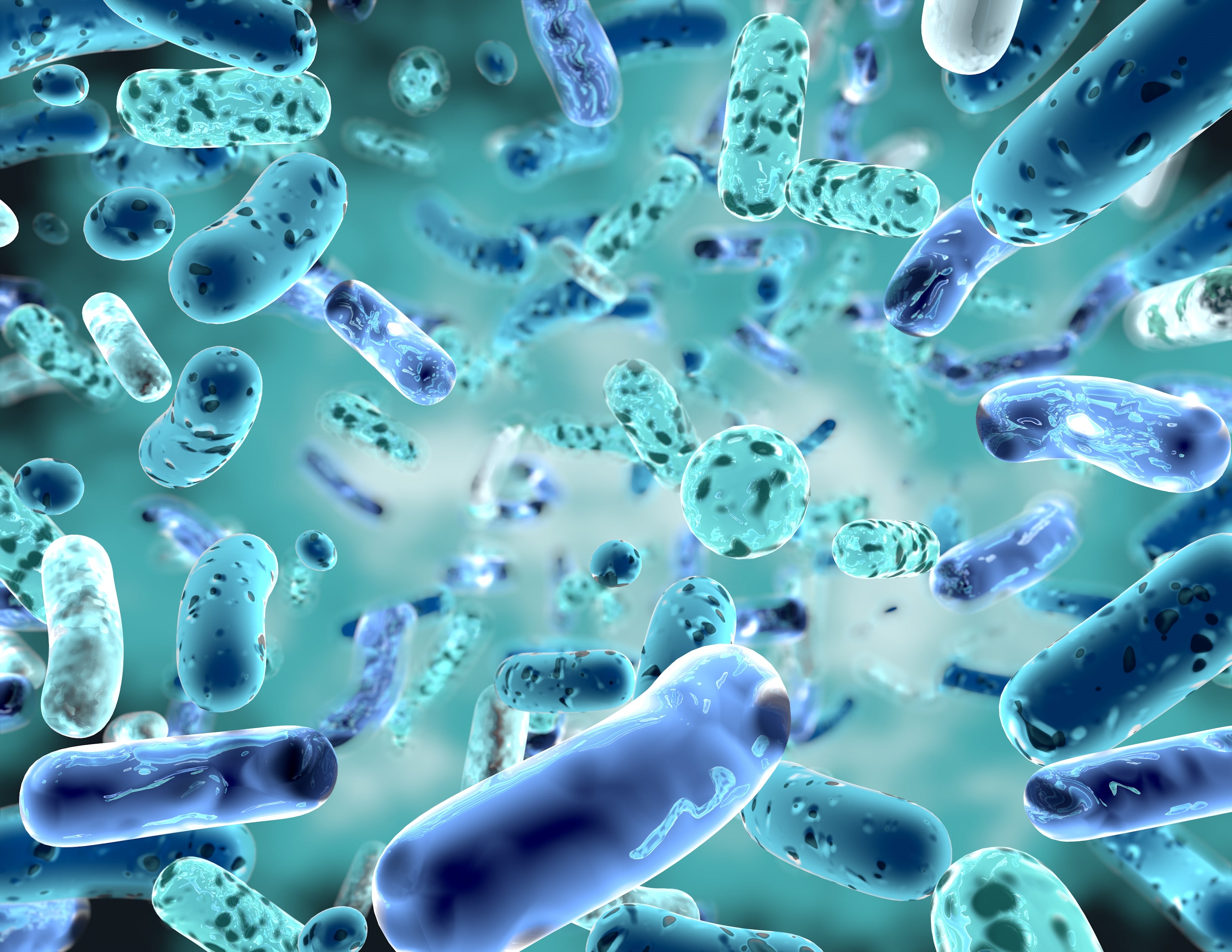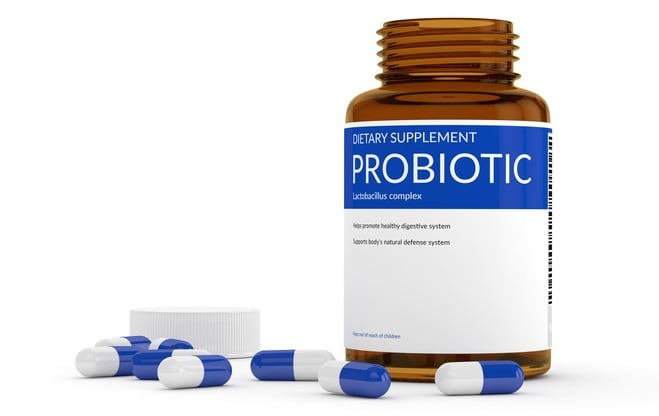The administration of antibiotics impacts gastrointestinal tract homeostasis, and is associated with an overall reduction in the numbers and diversity of the gut microbiota, decreased SCFA production, accumulation of luminal carbohydrate, subsequent pH changes, decreased water absorption, and, potentially, Antibiotic-Associated Diarrhoea (AAD). However, the etiology of AAD is not fully elucidated.
The rate of diarrhoea associated with antibiotic usage is 5–25%, with 1–2% of those patients testing positive for Clostridioides difficile, which can result in serious illness.
While there are robust clinical trials documenting the efficacy of some probiotics in preventing AAD, the mechanism(s) behind this are unclear. Few studies have measured the impact of probiotics on the gut microbiota community structure and function in the context of the amelioration of antibiotic-induced disturbances.
The aims of the current study therefore were to assess how a widely prescribed, broad-spectrum antibiotic impacts the faecal levels of SCFAs and the taxonomic composition of the gut microbiota, and to evaluate whether the probiotic Bifidobacterium animalis subsp. lactis BB-12 (BB-12) could ameliorate any of these changes.
Acetate is the most abundant SCFA, produced through anaerobic microbial fermentation in the human colon, and its production is reduced by antibiotic treatment. Since BB-12 produces acetate in vitro, the researchers hypothesised that acetate production by BB-12 may mediate, at least in part, the ability of this strain to reduce AAD. They therefore used faecal acetate levels as our primary outcome measure in this trial.
The study
The mechanistic, double-blinded, randomised controlled study involved 56 healthy participants (aged 18-65) and was conducted with two parallel arms, in a 2:1 fashion, with more participants in the BB-12 group than in the control group.
Following the completion of the informed consent and enrollment procedures, participants commenced a 30-day run-in period in which they refrained from all probiotics. After, participants began the antibiotic and yogurt drink interventions on day one.
Each participant received a seven-day course of amoxicillin/clavulanate, 875 mg taken twice daily, and a 14-day supply of either a probiotic yogurt supplemented with BB-12, or a control yogurt. Participants were instructed to consume a 100 mL daily serving of the study drink alongside with the amoxicillin/clavulanate.
The intervention yogurt has been researched under an investigational new drug application (IND), as a live biotherapeutic product that is approved for study by the Food and Drug Administration (FDA) Center for Biologics Evaluation and Research (CBER).
Faecal samples were taken for SCFA and microbiome analyses. The researchers also collected clinical data, including demographics, common clinical outcomes, adverse events, and dietary recall diaries.
Results
Consistent with their hypothesis, the team found that BB-12-containing yogurt attenuated the decrease in acetate after antibiotic treatment and produced a more rapid return to the baseline SCFA levels than the control yogurt without BB-12.
They observed a 25% average decrease in faecal acetate at day 30 in the control group, while the levels of acetate in the BB-12 group had returned to near the baseline levels at the same time points. On day 30, they also observed that the levels of propionate and butyrate were still greatly reduced in the control subjects, with butyrate being nearly 40% reduced from the baseline.
These findings are consistent with previously published reports on the delayed and incomplete recovery of the gut microbiota in healthy subjects receiving antibiotics, and suggest that antibiotic perturbation of the gut microbiota may have long-term functional consequences.
The data from this clinical study were also consistent with the team's hypothesis that BB-12 supplementation can mitigate antibiotic-induced shifts in the microbiota, and are associated with a quicker return to the baseline microbiota composition, as compared to the control group.
The report notes: "In the control group, we saw a significant reduction in the relative abundance of several known butyrate producers from the Lachnospiraceae and Ruminococcaceae families at day 7, and these changes persisted through to day 30. By contrast, while we observed a reduction in the relative abundance of many of these same taxa in the BB-12 group on day 7, these changes began to resolve at day 21, and by day 30 there were no differences observed in the relative abundance of a number of putative butyrate producers as compared to the baseline."
This study was not powered to detect clinical changes, and almost no AAD was observed. However, 44% of the participants in the control group reported some loose stool at day 7, compared to 26% of those in the BB-12 group. Additionally, 44% of the control group reported some flatulence by day 7, compared to only 10% of the BB-12 group.
Importantly, B. animalis was not detected in the feces of subjects in the BB-12 group on days 21 and 30, although SCFA and microbiome changes persisted to day 30. This suggests that BB-12 may have initiated changes to the microbiome, perhaps via the cross-feeding of resident microbes or other mechanisms, resulting in lasting, beneficial effects that were not dependent on high levels of BB-12.
Several studies have shown that the antibiotic-induced disruption of commensal bacteria in the colon results in a significant reduction in SCFA production (5–90% depending on antibiotic) and a concomitant reduction in sodium (Na+)-dependent fluid absorption that results in AAD.However, Clausen et al. reported that AAD was consistently related to reduced faecal SCFA concentrations and production rates, and that patients without altered bacterial metabolism (i.e., unaltered SCFA levels) did not experience AAD.
Taken together, the researchers in the current study say their results support the idea that BB-12 attenuates AAD through sustaining acetate production and Na+-dependent fluid absorption.
Some limitations of this study include the 30 day assessment period, meaning the researchers cannot determine how long it would take for the SCFA levels to return to the baseline.
Additionally, SCFA composition has been shown to vary with dietary composition and this study was not controlled for diet. Furthermore, the microbiota analyses that are presented in this study, are relative rather than absolute measures.
Thus, some of the results may be attributable to changes in the absolute, rather than the relative, abundance of the various members of the stool microbiota, as well as the total population size and stool biomass produced.
Source: Nutrients
Merenstein, D., Fraser, C.M., Roberts, R.F., Liu, T., Grant-Beurmann, S., Tan, T.P., Smith, K.H., Cronin, T., Martin, O.A., Sanders, M.E., Lucan, S.C., and Kane, M.A.
"Bifidobacterium animalis subsp. lactis BB-12 Protects against Antibiotic-Induced Functional and Compositional Changes in Human Fecal Microbiome"
https://doi.org/10.3390/nu13082814 (registering DOI)





